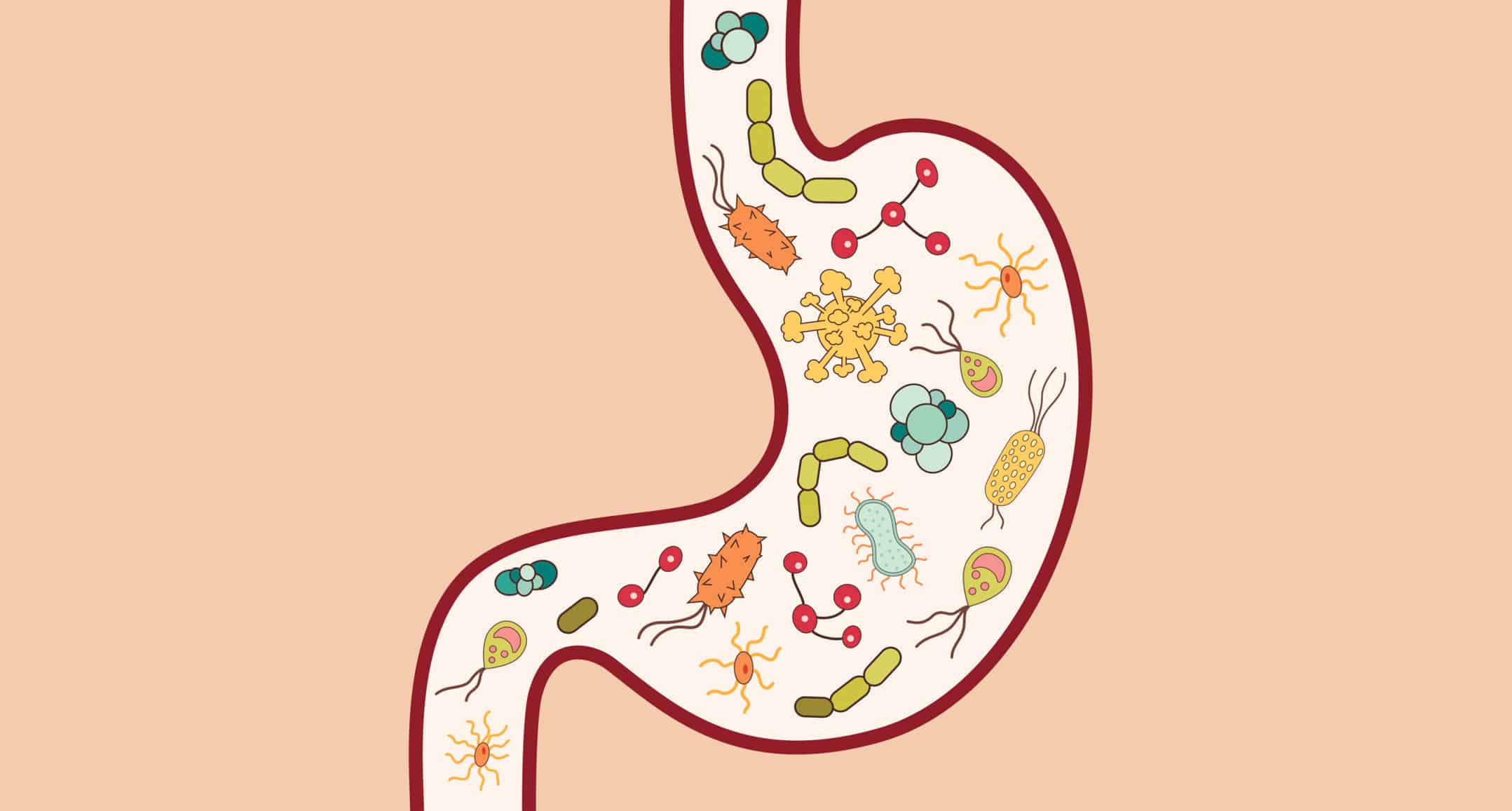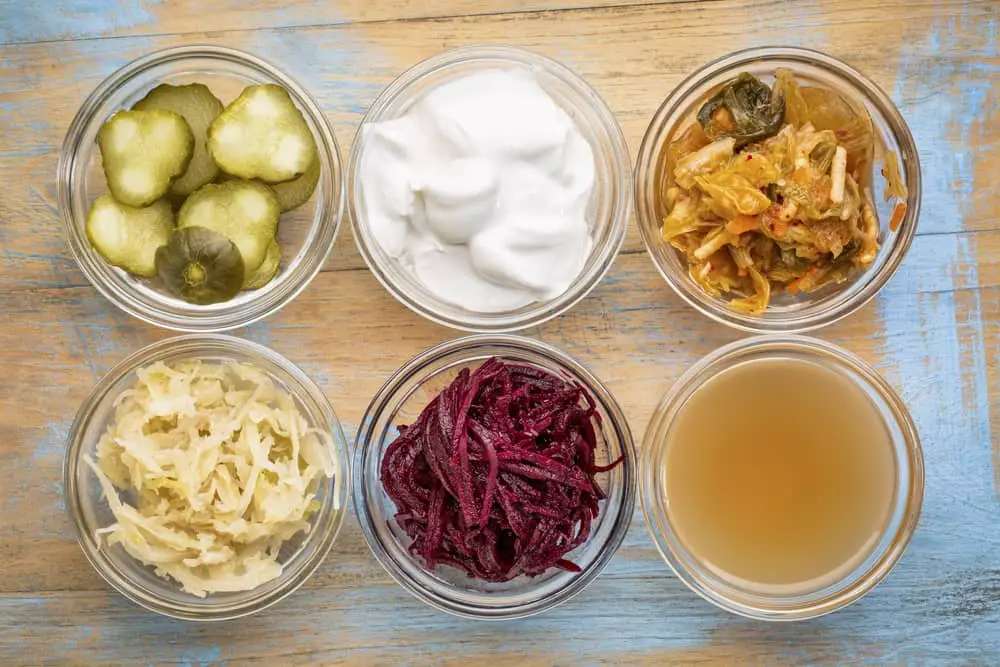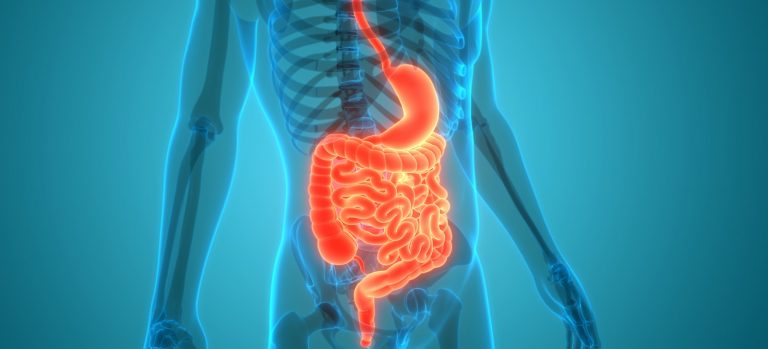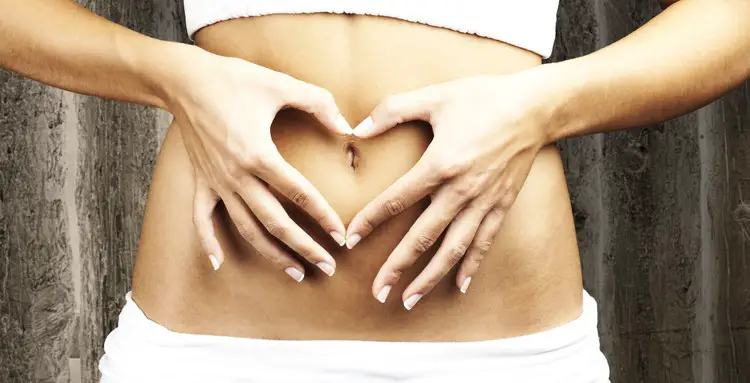Types of Probiotics: Which Probiotic Strains Are Best for You?
Probiotics are certainly in the news more than they used to be. You probably see ads for probiotic products quite often. But how do you know which probiotic strains your body needs? What do the different types of probiotics do?
Probiotics are usually bacteria, but in all cases, they’re live microorganisms that have similarities to those beneficial microorganisms that live naturally in the human digestive tract. They are “good bacteria,” which can prevent or lessen the symptoms of many health conditions.
More than 500 species of bacteria live in your gut. That’s a lot of bacteria. They facilitate digestion, provide nutrients and help to form your immune system. About 10% of your daily energy needs may be derived from good gut bacteria byproducts.
Probiotics boost your immune system, and when they are present in abundance, it’s more difficult for “bad” bacteria to cause disease since they’re outnumbered.
What is even more interesting is that different strains of probiotics have different health benefits. That means it’s essential that you choose the right probiotics for you and your specific health needs. To help you do so, here’s a roundup of the most well-known probiotic strains and their various health benefits.
Ready to meet your probiotic soul gut mate? Use the quick navigation below to scroll to the one of your choice!
Lactobacillus Species
These are the most important group of bacteria in your small intestine. They produce lactase, which breaks down sugar in milk and ferments the carbs you take to produce lactic acid.
Lactic acid creates an acidic environment in your digestive tract, making it an inhospitable place for unhealthy microorganisms to thrive. It also helps your body absorb important minerals, like iron, magnesium, copper, and calcium.
Below, we’ll look at the different species of lactobacillus bacteria and how they help you remain healthy.
L. acidophilus
This is quite possibly the most vital strain of Lactobacillus bacteria. It congregates densely in your intestine and helps to maintain intestinal wall integrity. It also supports your digestive function and ensures proper nutrient absorption.
Lactobacillus acidophilus helps ease digestive discomfort. A study of this probiotic shows that it can alleviate occasional diarrhea. When paired with B. bifidum, acidophilus is also helpful in modulating the response of intestinal flora to adverse antibiotic effects. Other benefits of L. acidophilus include its help with vaginal and urinary tract health for women.
Acidophilus aids in improving cholesterol and blood pressure. It fights fungal and bacterial infections and reduces the severity of symptoms in allergies.
It’s best for…
- Overall digestion
- Diarrhea relief
- Protects intestinal flora from antibiotics
- Vaginal and urinary tract health in women
- Cholesterol and blood pressure
- Fungal and bacterial infections
- Allergy relief
L. rhamnosus
This strain of probiotics can survive passing through the entire GI tract. For this reason, it is believed to be one of the best probiotic strains in improving vaginal health. It helps decrease irritation of the vaginal area. It’s also helpful with weight loss.
As if probiotics knew they were traveling when you do, Lactobacillus rhamnosus appears to love to travel to foreign lands. Research on this strain revealed that Americans who traveled from New York City, NY to a developing country had only a 3.9% rate of diarrhea after taking L. rhamnosus compared to the 7.4% rate for people who made the same type of trip without taking any probiotic.
It’s best for…
- Preventing travel-related diarrhea
- Vaginal and urinary tract health in women
- Weight loss
L. casei
Lactobacillus casei is a superstar on the probiotic team. Research shows that it helps with diarrhea in children. Its other benefits include increasing immunity to disease, improving digestion, improving cholesterol levels, and reducing allergies.
This probiotic is also used in making some tasty foods. It is part of making yogurt, cheese, and other products made with fermented milk. L. casei is only a transient bacterium in your body, but it is a probiotic native to cattle. It is found naturally in raw cow colostrum and milk.
It’s best for…
- Overall digestion
- Boost immunity
- Allergy relief
- Improve cholesterol levels
L. Plantarum
L. Plantarum produces hydrogen peroxide. Your body can use this to defend itself from bacteria found in food and against other harmful microorganisms. Research shows that this particular strain is especially effective in assisting the immune system of healthy adults. It’s also helpful for digestion.
In the research mentioned above, it was shown that in humans who have been infected with HIV, the primary location of the immune activity is in the gut. The cells of the immune system, boosted by L. Plantarum, can attack HIV.
Otherwise, the bad bacteria results in the sloughing of the intestinal lining, which shows itself as severe diarrhea. When the gut lining is damaged, other species can invade, which results in AIDS-defining illnesses like Cryptococcosis. L. Plantarum can reduce or even destroy IL-1β, which resolves the inflammation and accelerates the self-repairing faculties of the gut.
It’s best for…
- Overall digestion
- Boost immunity
- Reduce bloating and gas
- IBS relief
L. gasseri
This is among the newer discoveries in probiotics. It is linked primarily to microflora that grows in the vaginal area. If you are a woman who tends to have vaginal discomfort, supplementing with this probiotic may help to improve your symptoms since women with normal vaginal health have higher levels of this probiotic in their systems.
L. gasseri is also supportive of digestive health. Research has shown that supplementing your diet with both B. longum and L. gasseri aid in limiting the occurrence of occasional diarrhea for adults. It has also been linked to weight loss in adults.
It’s best for…
- Weight loss and reducing belly fat
- Vaginal health in women and reduced menstrual pain
- Improve cholesterol levels
L. salivarius
This probiotic strain is found naturally in your throat, sinuses, and mouth, as well as in the vagina and intestines. It grows most easily within the confines of the small intestine.
Research shows that L. salivarius causes increased immune activity. When you supplement with this probiotic, it will aid in the prevention of colonizing “bad” bacteria. L. salivarius is also helpful with dental health and immune system health.
It’s best for…
- Overall digestion
- Boost immunity
- Improve dental health
L. paracasei
This probiotic is naturally found in your small intestine, but if you take it along with milk protein to increase its resistance to stomach acids, it can colonize in the colon as well.
L. paracasei helps in supporting proper liver function in the body. A randomized study proved that supplementing with this probiotic and fiber improves liver function and lowers urine pH in half of those subjects tested. This probiotic also helps in fighting fatigue and can be effective for relieving symptoms of chronic fatigue syndrome.
It’s best for…
- Liver health
- Infant diarrhea
- Improve energy levels and chronic fatigue syndrome
L. reuteri
This probiotic is not as well-known as most others. It colonizes the mouth and the intestine. It has been shown in human trials to be supportive of immune, digestive and oral health. As an anti-inflammatory, it helps your gut health by increasing the availability of vitamin D, as it lowers cholesterol and fights the growth of candida.
L. reuteri helps treat diarrhea, especially in children. It decreases the length of time people suffer from diarrhea. If you supplement your child’s diet with this probiotic, it will help prevent diarrhea in the first place. This probiotic also helps in treating colic in infants and can help in the prevention of peptic ulcers.
It’s best for…
- Overall digestion
- Oral health
- Reducing diarrhea
- Candida infections
L. brevis
L. brevis gives your digestion system valuable anti-inflammatory benefits. One study offered proof that patients with Behcet’s syndrome supplementing with L. brevis could control oral ulcers often associated with this disease.
As a lactic acid bacterium, L. brevis has shown that it can displace harmful bacteria, and it even showed anti-cancer activities in a recent study. It helps older people increase their cellular immunity.
Women in their child-bearing years usually have higher amounts of L. brevis in their vagina. This probiotic is useful in the prevention of urinary tract infections.
It’s best for…
- Immunity and anti-inflammatory benefits
- Vaginal and urinary tract health in women
L. helveticus
This probiotic has shown in research that it helps in the reduction of high blood pressure. It is used often in Switzerland and is sometimes even used to culture Swiss cheese. L. helveticus can improve sleep duration and quality, increase serum calcium levels in the blood, decrease PTH from bone loss, and assist in producing ACE inhibitors.
L. helveticus supports the immune system’s response and displaces bad bacteria as it colonizes the intestines. As it does so, it improves good (HDL) cholesterol and supports the digestive tract.
It’s best for…
- Overall digestion
- Boost immunity
- Sleep issues
- Bone density
- Improve blood pressure levels
L. fermentum
This strain of probiotics is found in kimchi and sourdough. It produces antioxidants that help neutralize the toxic products formed in the intestinal tract when digesting food. It can also exhibit activity that fights foodborne pathogens. L. fermentum is very useful in improving detoxification and overall digestion.
This probiotic enhances the work done by antioxidant enzymes, your resistance to infection by E. coli, and your overall immune response. It also helps to alleviate occasional bloating and gas.
It’s best for…
- Overall digestion
- Boost immunity
- Detoxification
- Reduce bloating and gas
Bifidobacterium Species
Billions (literally) of Bifidobacterium can be found lining the large intestine walls, helping to ward off many harmful, invasive microorganisms and bacteria like yeast. These bacteria produce helpful lactic acid, which provides nearly 70% of the energy your cells need to line the walls of the intestine. This enhances your body’s natural barrier of protection in the digestive tract.
Lactic acid is also helpful in keeping the large intestine’s pH acidic, which discourages bad bacteria growth. An environment lower in pH also facilitates your body’s ability to absorb beneficial minerals, including iron, zinc, magnesium, copper, and calcium.
B. bifidum
B. bifidum is one of the first probiotics your guts ever became home to, and throughout your life, it will continue to be among the main good flora in your large intestine. It helps promote bacterial balance and prevents the growth of “bad” bacteria, yeasts, and molds. It does this by adhering naturally to the mucosa in the intestines.
This probiotic helps your body to break down protein, complex carbohydrates, and fat. It produces beneficial enzymes that break down large molecules into smaller sizes that your body can use more efficiently. A human trial has shown that this probiotic helps to alleviate diarrhea, particularly when you travel.
It’s best for…
- Overall digestion
- Nutrient absorption
- Boost immunity
- Prevent diarrhea and travel-related bad bacteria
B. longum
B. longum is a common strain of probiotics in the gastrointestinal tract. It scavenges and neutralizes toxins in the intestines and breaks down carbohydrates. Preliminary research has shown that this probiotic scavenges free radicals and helps the body chelate metal ions, particularly copper ions.
This probiotic supports immune health and aids in overall digestion. It also is an integral part of the health of your immune system. B. longum helps alleviate diarrhea associated with taking antibiotics and lessens seasonal allergy symptoms. It may help in weight management programs. It contributes to better bone health and helps in the prevention of colon cancer.
It’s best for…
- Overall digestion
- Detoxification
- Allergy relief
- Prevent diarrhea
- Bone density
- Weight loss
B. infantis
This strain of probiotics is the single largest beneficial bacteria population in babies. The amount in your gut will decline as you age, but it still will remain a vital part of your microflora. Supplementing a healthy diet with B. infantis has been proven in a study to decrease the difficulty of bowel movements and associated bloating.
If you keep your Bifidobacterium infantis levels balanced, you will experience less discomfort after eating and have an active metabolism and better health overall. Research in the UK has shown that women who took B. infantis for only a month experienced a lessening of IBS symptoms.
It’s best for…
- Overall digestion
- Promote regularity
- IBS relief
B. lactis
This helpful probiotic is quite powerful. It fights the growth of tumors. It also enhances your immunity, helps in lowering cholesterol, and improves your digestion.
Research has shown that B. lactis inhabits the colon and intestines in impressive numbers. It breaks down waste in the body and aids your body in absorbing important vitamins & minerals. It improves the comfort of general digestion, decreases lactose intolerance, decreases the permeability of the intestine, normalizes bowel movements, decreases constipation and IBS symptoms, and treats acute diarrhea.
In addition to being helpful in digestion, B. lactis helps your oral health. It decreases the bacteria in the mouth that cause cavities. It also reduces the severity and frequency of respiratory problems and increases immunity among geriatric patients.
B. lactis inhibits the growth of H. pylori, which can cause ulcers, reduces instances of the flu and colds, reduces inflammation and allergies, and decreases dermatitis sensitivity and symptoms. In patients with diabetes, this probiotic increases the control of blood glucose levels. It improves cholesterol levels by increasing good (HDL) cholesterol and decreasing overall cholesterol.
It’s best for…
- Overall digestion
- Immunity and anti-inflammatory benefits
- Nutrient absorption and waste elimination
- Lactose intolerance
- Oral health
- Ulcer prevention
- Skin conditions
- IBS relief
Bacillus Species
Bacillus is “good” bacteria, shaped like rods and bearing spores, and they produce lactic acid. They are resistant to light, heat, and moisture, which means they can work in the stomach’s acidic environment. They also colonize readily in your small intestine. Since bacillus are excreted only slowly, they remain in the body for longer time periods than many other bacteria.
B. coagulans
Like other bacteria that produce lactic acid, B. coagulants produce enzymes that help digest lactose. It improves your body’s ability to properly utilize iron, calcium, and phosphorus. It also stimulates gastric motility and gastric juices.
This particular probiotic strain supports women’s vaginal health. One study showed that women taking B. coagulans every day had improvement in the pH level of the vagina, and 91% of patients found relief from their vaginal discomfort through the daily use of this probiotic.
B. coagulans is one of the more powerful strains of probiotics. It can help in fighting off invasive pathogens and viruses. It usually resides in your digestive tract and can decrease IBS symptoms, including bloating and abdominal pain. It is also used to offer relief from the effects of occasional constipation.
It’s best for…
- Overall digestion
- Nutrient absorption
- Lactose intolerance
- Vaginal pH and health for women
- Boost immunity
- Constipation
- IBS relief
B. clausii
This probiotic strain lives naturally in soil. However, it has been studied for use in easing respiratory infections in children. It also has shown promise in fighting the effects of gastrointestinal disorders.
B. clausii produces antimicrobial substances that have been shown in a scientific study to act effectively against some harmful bacteria, including Clostridium difficile, Staphylococcus aureus, and Enterococcus faecium. This means that it has effective immunomodulatory and antimicrobial activities and is effective against the invasion of negative bacteria like Caco-2 cells and Vero cells.
It’s best for…
- Overall digestion
- Respiratory infections
- Boost immunity and antimicrobial
Streptococcus Species
Streptococcus species have more strains than disease-causing bad bacteria. There are probiotic “good” bacteria that can help to prevent disease. They are lactic acid bacteria and ferment glucose into lactic acid.
Streptococcus probiotics are found in your mucus membranes and even on your skin. They can also relocate to tissues deeper in the body. The subtle differences between good and bad strains allow you to understand which strains are probiotics. These strains prove themselves helpful in warding off disease and fighting disease once it has breached your body’s defenses.
Bacillus includes parasitic and nonparasitic species. In addition to the few types in the human body, many bacillus bacteria grow in soil and are used as pesticides and growth additives for plants.
S. thermophilus
S. thermophilus is a powerful strain of probiotics with multiple benefits to your health. It is found naturally in the colon, where its immunity and digestive benefits are most often seen.
This probiotic produces lactase, helping people to digest milk more efficiently. It is useful in its production of antibiotic chemicals that prevent infections like pneumonia. S. thermophilus also helps in the prevention of ulcers.
It’s best for…
- Reduce diarrhea associated with antibiotics
- Prevention of ulcerative colitis
- Decrease symptoms of IBS
- Increase HDL (good) cholesterol
- Reduce atopic dermatitis symptoms
- Increase anti-tumor activity
- Decrease colic in babies
S. salivarius M18
This probiotic is found mainly in oral mucosa, and it produces bacteriocin-like inhibitory substances (BLIS). It is especially active in specific areas of your teeth and gums. It promotes a healthy inflammatory response there.
Research has shown that S. salivarius M18 produces benefits in the mouth because its bacteriocins target Streptococcus mutans and the enzymes urease and dextranase, which otherwise promote the accumulation of dental plaque.
In that double-blind study, 100 children were treated with M18 for three months, and at the end of that time, oral plaque scores were much lower in the group given M18.
It’s best for…
- Protect teeth and gums, prevent plaque
S. salivarius K12
This probiotic strain is found mainly in the oral cavity’s mucus membranes. It produces BLIS, similar to the effects of S. salivarius M18, which inhibit the ability of other undesirable bacteria to grow.
In research, it was discovered that about 10% of the population carry BLIS-producing oral bacteria strains naturally, and they have fewer incidences of sore throat than the rest of the population.
In addition, S. salivarius K12 offers children better ear health. It increases the levels of interferon-gamma (which signals a positive immune response) and a reduction in sulfur compounds that can otherwise cause bad breath.
It’s best for…
- Overall dental health
- Protect against sore throat
- Ear health
- Bad breath
Sources of Probiotics
You can find probiotics in several sources, from the food you eat to the dietary supplements you choose to take each day.
Food
Fermented foods are a great source of probiotics. Some commercial yogurts, for example, contain probiotic microorganisms like Lactobacillus bulgaricus and Streptococcus thermophilus. Some unfermented probiotic foods like kinds of milk, juices, smoothies, cereal bars, and toddler and infant formulas also have added microorganisms.
However, to determine if these sources contain true probiotics, you have to determine if the microorganism levels they contain when eaten can survive the transit through the intestines.
Dietary Supplements
You can also find probiotics in the form of dietary supplements and are often offered as a capsule, powder, or liquid. They often contain various strains and doses and combine mixed cultures and live microorganisms rather than just a single probiotic strain.
Probiotics are also measured in colony-forming units (CFU). This number indicates how many viable cells are present in the probiotic. You can find the CFU on the product label of your dietary supplement. Look for the number it says at the end of the shelf life of the product rather than what the number was at the time it was manufactured.
Probiotics and Your Health
As you can see from the information above, many studies have been conducted over the years showing how various probiotic strains can positively affect our health. Below are just a few conditions they have been found to treat.
Atopic Dermatitis: this is the most common form of eczema and is also one of the more common inflammatory skin conditions one may experience. It affects approximately 20 percent of children and up to 3 percent of adults around the world. Probiotics have been found to reduce dermatitis, including when taken postnatally or prenatally.
Pediatric Acute Infectious Diarrhea: Acute diarrhea is often accompanied by fever and vomiting and doesn’t usually last more than seven days. Single and multistrain probiotics were found to significantly shorten the duration of acute infectious diarrhea by 25 hours. The probiotic supplements were also found to reduce the risk of diarrhea for more than four days.
Antibiotic-Associated Diarrhea: The use of antibiotics is another common cause of acute diarrhea. The antibiotics we take disrupt our intestinal microbiome and decrease our microbial diversity. This can lead to a loss of colonization resistance and increased intestinal motility. However, those taking probiotics while on antibiotics found that antibiotic-associated diarrhea was reduced by approximately 51 percent.
Irritable Bowel Syndrome: This is a gastrointestinal tract disorder that results in abdominal discomfort and pain along with bloating, gas, and changes in stool and frequency. Irritable bowel syndrome (IBS) has also been found to link with stress. However, studies have found that probiotic use reduces the symptoms of IBS, especially the use of multistrain probiotics.
As you can see, probiotic use can be beneficial for your health because it can help balance the friendly bacteria in your digestive system. It is essentially a way to keep your body neutral while improving immune health and digestive health.
Probiotic Bacterium FAQ
Still have questions about probiotics, how to use them, and their benefits? Read on for more information.
How do you know if you need probiotics?
It may be time to start taking a probiotic for digestive health and overall health if you begin experiencing digestive irregularity, out-of-control sugar cravings, slow metabolism, you are on a round of antibiotics, or you have skin issues like eczema, psoriasis, and rashes.
What should I look for in a probiotic?
One of the more general recommendations when it comes to choosing a probiotic is finding one with at least one billion colony-forming units as well as one that contains the genus Lactobacillus, Bifidobacterium, or Saccharomyces boulardii.
How long should I take a probiotic?
It is recommended that you take your probiotic’s recommended dose for at least four weeks. During this time, you should monitor the effects of the probiotic supplement.
What are prebiotics and synbiotics?
Prebiotics are selectively fermented ingredients that allow for very specific changes in the composition and activity in gastrointestinal microflora. Synbiotics are mixtures of probiotics and prebiotics and refer to the food ingredients or dietary supplements that contain both in the form of synergism.
Disclaimer: While our team of medical expert writers makes every effort to convey the correct, relevant, and most up-to-date information, you should never disregard advice given to you by your medical practitioner or delay seeking medical assistance because of something you have read on Gutsify or received in correspondence from Gutsify. Please refer to our Terms and Conditions.








